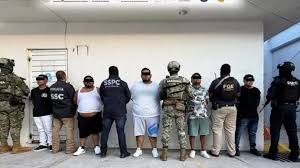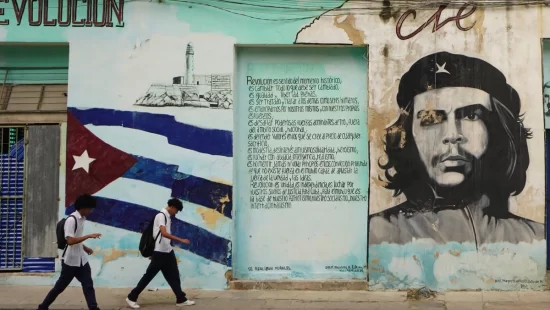In March, Secretary of State Marco Rubio stripped Turkish doctoral student Rümeysa Öztürk’s of her visa based on what a court later found was nothing more than her opinion piece critical of Israel.
Now, a bill introduced by the chair of the House Foreign Affairs Committee is ringing alarm bells for civil liberties advocates who say it would grant Rubio the power to revoke the passports of American citizens on similar grounds.
The provision, sponsored by Rep. Brian Mast, R-Fla., as part of a larger State Department reorganization, is set for a hearing Wednesday.
Mast’s legislation says that it takes aim at “terrorists and traffickers,” but critics say it could be used to deny American citizens the right to travel based solely on their speech. (The State Department said it doesn’t comment on pending legislation.)
Seth Stern, the director of advocacy at Freedom of the Press Foundation, said the bill would open the door to “thought policing at the hands of one individual.”
“Marco Rubio has claimed the power to designate people terrorist supporters based solely on what they think and say,” Stern said, “even if what they say doesn’t include a word about a terrorist organization or terrorism.”
Vague “Terrorist” Designations
Mast, for his part, has publicly voiced his support for “kicking terrorist sympathizers out of our country.” At the time, he was talking about deporting Mahmoud Khalil, a Palestinian green-card holder who the Trump administration detained and attempted to deport based on what critics of the move said were his pro-Palestine views.
Mast’s new bill claims to target a narrow set of people. One section grants the secretary of state the power to revoke or refuse to issue passports for people who have been convicted — or merely charged — of material support for terrorism. (Mast’s office did not respond to a request for comment.)
Kia Hamadanchy, a senior policy counsel at the American Civil Liberties Union, said that language would accomplish little in practice, since terror convictions come with stiff prison sentences and pre-trial defendants are typically denied bail.
The other section sidesteps the legal process entirely. Rather, the secretary of state would be able to deny passports to people whom they determine “has knowingly aided, assisted, abetted, or otherwise provided material support to an organization the Secretary has designated as a foreign terrorist organization.”
The reference to “material support” disturbed advocates who have long warned that the government can misuse statutes criminalizing “material support” for terrorists — first passed after the 1996 Oklahoma City federal building bombing and toughened after the 9/11 attacks — to punish speech.
Some of those fears have been born out. The Supreme Court ruled in 2010 that even offering advice about international law to designated terror groups could be classified as material support.
The government even deemed a woman who was kidnapped and forced to cook and clean for Salvadoran guerrillas a material supporter of terrorism, in order to justify her deportation.
Since the October 7 Hamas attacks, pro-Israel legislators and activists have ratcheted up attempts to expand the scope and use of anti-terror laws.
The Anti-Defamation League and the Louis D. Brandeis Center for Human Rights Under Law suggested in a letter last year that Students for Justice in Palestine was providing “material support” for Hamas through its on-campus activism.








